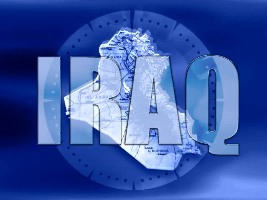FEATURE: Iraqi militias caught between al-Qaeda and the police
 Baghdad - The strategy always carried risks. But the immediate results - largely pacifying broad swathes of what had formerly been the most unstable areas of Iraq - were so spectacular that many were willing to set their worries aside.
Baghdad - The strategy always carried risks. But the immediate results - largely pacifying broad swathes of what had formerly been the most unstable areas of Iraq - were so spectacular that many were willing to set their worries aside.
Many in Iraq, including some in the US military and some in the militias themselves, had long warned that the roughly 49,000 men who over the years joined the "Awakening Councils" - or "Sons of Iraq," as the US soldiers call them - might turn against the government if they were not absorbed into the security forces.
Three years after the programme began, there are signs of a brewing confrontation between the militias and the government.
On Thursday, the US military passed control of the Awakening Councils to the government of Iraq, which is now dominated by Shiites and Kurds.
That same night, a US war plane opened fire on four men, guarded by lookouts, who had been spotted planting a bomb by the side of a road near the US military base at Taji, north of Baghdad, the US military said on Friday.
At least one man was killed and at least two others were wounded in that strike. Preliminary investigations showed that at least one of the men had worked with the local council.
Prime Minister Nuri al-Maliki's government initially warned of the dangers of arming the Sunni tribes, but faced with the Awakening Councils' success at arresting insurgents in such former hot-spots as al-Anbar, Alexandria, Latifiyah, al-Samarra and al-Madain, the government came to an uneasy peace with them.
"There have been some constitutional and legal problems with some of the members here and there," Ahmed al-Khafaji, undersecretary to the Iraqi Minister of the Interior, told the German Press Agency dpa.
"But generally, the Awakening Councils have achieved positive results on the ground, and are working in the right direction."
The government promised to absorb 20 per cent of the militiamen into the Iraqi military and police, and to employ the rest on reconstruction projects and other civilian jobs.
But in the weeks running up to the transfer, Iraqi security forces began arresting members of the Awakening Councils, charging that they were Baathists and insurgents.
Last Saturday, clashes broke out in the Baghdad slum of Fadhil when Iraqi security forces arrested Adil al-Mashhadani, the head of the local Awakening Council.
It took Iraqi soldiers, backed by US troops, two days to quell the uprising that followed. At least 15 people were killed in the fighting, and security forces acknowledged that hundreds may have escaped with their weapons.
"Our intelligence confirmed that al-Qaeda and the Baath Party had infiltrated the local council," al-Maliki told Baghdad's al-Iraqia satellite television station after the incident.
"What happened in the neighborhood ... was not a revival (of the insurgency)," he said. "But the local organisation was a branch of the Baath Party."
Members of the Awakening Councils, long suspicious of the government's plans for them after the US soldiers leave, viewed the arrests with alarm.
"The operations against Awakening Council members may be the government's attempt to get rid of these forces," said one 46-year- old member of a council in Baghdad, who gave his name only as "Abu Mohammed."
"Many of the Awakening Councils' leaders have fled the country, fearing arrest, particularly after the US agreement consigning control of the councils to the Iraqi government," he told dpa.
Abu Mohammed has been a soldier his entire adult life. By the time of the US-led invasion in 2003, he had risen to the rank of colonel. When the United States disbanded the Iraqi army, he was unable to find work.
But when the US military started the Awakening Councils in cooperation with Sunni politicians and tribal leaders, many of his old colleagues from the army started to join. Abu Mohammed decided he would, too, "out of love for the homeland, regardless of who was governing it."
"Work in the Awakening Councils was not as easy as some might think," he said. "We chased away or arrested dozens of armed groups and handed them over to the
(regular) Iraqi troops."
The success of the thousands of unemployed Iraqis like him in central and northern Iraq who joined the Awakening Councils to find work and to protect their villages from attack made them targets.
Dozens were killed by suicide bombers, Abu Mohammed said. Countless others left the Awakening Councils after al-Qaeda in Iraq and other armed groups threatened them and their families.
Ibrahim al-Kibassi, a doctor from Baghdad, viewed the Awakening Councils as a threat.
"They are a US project that achieved positive results for the US side, but not for Iraq," he told dpa. "The project depended on a group of gunmen and bandits who were given vehicles and delusions of grandeur and authority."
Others warned of the danger of not absorbing the Awakening Councils back into the government.
"The Awakening Councils saved the country from the dangers of sectarian war," said Hussein Hafez, a professor of political science at Baghdad University. "If it were not for them, Iraq would have been run ragged by the US project to divide the country."
"The Awakening Councils devoted themselves to protecting Iraq, risking assassination for years," he continued. "Today they are in danger, caught between hammer of al-Qaeda and the anvil of the government."
"If the government does not absorb them, someone else might," Hafez said. "Not taking in the Awakening Councils will take us back to square one. There are international forces that still wish to send Iraq back to its violent past." (dpa)